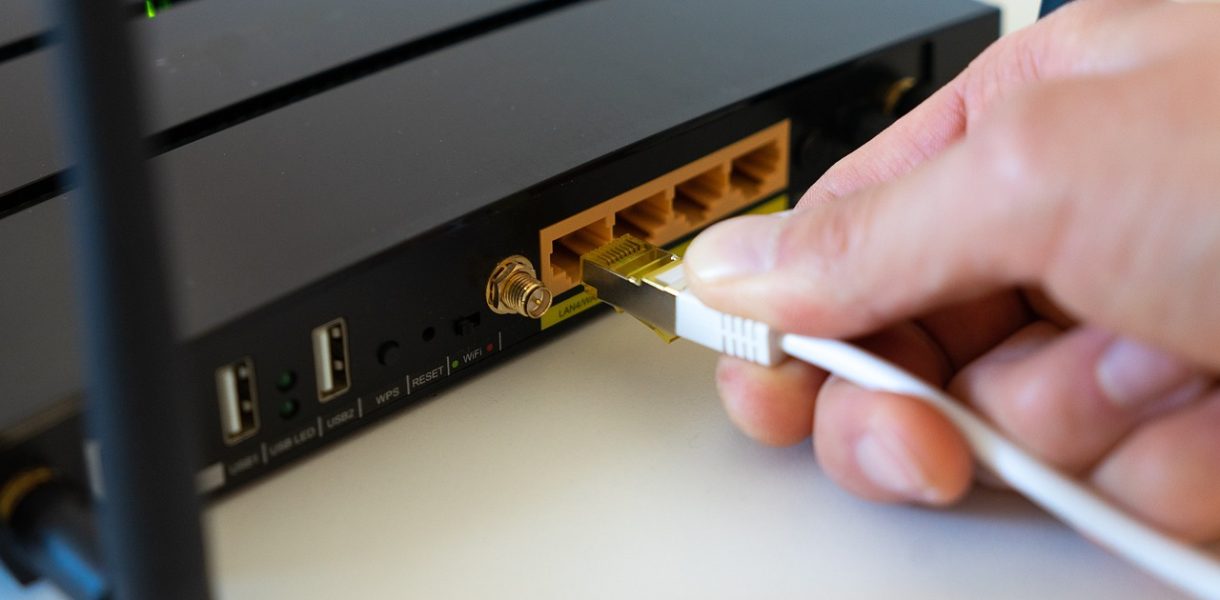The Influence of Social Media on Children’s Development and Behavior
Social media has become an integral part of children’s lives, significantly impacting their development and behavior. One way in which social media influences children is through the exposure to various ideas, beliefs, and perspectives. With just a few clicks, children can access a wide range of information and opinions from around the world. This exposure can broaden their knowledge and understanding of different cultures, viewpoints, and issues.
However, it is important to recognize that not all content on social media is beneficial or appropriate for children. The constant stream of information can be overwhelming and lead to feelings of anxiety or inadequacy. Moreover, the influence of social media on body image ideals has been well-documented. Children may compare themselves to unrealistic standards portrayed by influencers or celebrities online, leading to negative self-perception.
Additionally, social media platforms provide opportunities for interaction with peers and strangers alike. While this can foster connections and friendships among children, it also exposes them to potential risks such as cyberbullying or online predators. It is crucial for parents to educate their children about responsible digital citizenship and ensure they understand how to protect themselves online.
Understanding the Risks and Dangers of Social Media for Children
With the increasing prevalence of social media in children’s lives, it is crucial for parents and caregivers to understand the risks and dangers associated with these platforms. One of the most significant concerns is online predators who may use social media to target vulnerable children. These individuals often disguise themselves as peers or trustworthy adults, making it difficult for children to recognize their true intentions. As a result, it is essential for parents to educate their children about stranger danger and teach them how to identify potential red flags when interacting with others online.
Another risk that arises from social media use among children is cyberbullying. The anonymity provided by these platforms can embolden individuals to engage in hurtful behavior towards others without facing immediate consequences. Cyberbullying can have severe emotional and psychological impacts on its victims, leading to decreased self-esteem, depression, and even suicidal thoughts. Parents must stay vigilant in monitoring their child’s online activities and be proactive in addressing any signs of bullying.
Furthermore, excessive screen time spent on social media can negatively impact a child’s physical health and overall well-being. Studies have shown that prolonged exposure to screens can lead to sedentary lifestyles, poor sleep quality, obesity, and decreased academic performance. It is crucial for parents to set limits on screen time usage while encouraging alternative activities such as outdoor play or engaging hobbies.
By understanding these risks and dangers associated with social media use among children, parents can take proactive measures in safeguarding their child’s online experiences. Open communication between parent and child regarding internet safety should be encouraged from an early age so that both parties are aware of the potential pitfalls that come with using these platforms.
Balancing Privacy and Safety: The Role of Parents in Monitoring Social Media Activities
Parents play a crucial role in balancing privacy and safety when it comes to their children’s social media activities. It is important for parents to be actively involved in monitoring their child’s online presence, ensuring that they are aware of the potential risks and dangers associated with social media platforms. By maintaining an open line of communication and establishing clear boundaries, parents can help protect their children from harmful situations.
One way parents can monitor their child’s social media activities is by setting up parental controls on devices and applications. These controls allow parents to limit access to certain websites or apps, as well as track their child’s online behavior. By utilizing these tools, parents can ensure that their child is engaging in appropriate online interactions while also respecting their need for privacy.
Additionally, regular conversations about responsible social media use are essential. Parents should educate themselves about popular platforms and discuss potential risks such as cyberbullying or sharing personal information with strangers. By teaching children how to navigate these challenges safely, parents power them to make informed choices when using social media.
Parents have a vital role in monitoring their children’s social media activities to balance privacy and safety effectively. Through proactive involvement, setting boundaries, utilizing parental controls, having open discussions about responsible use, and educating both themselves and their children about potential risks, parents can create a safer online environment for their kids.
Teaching Responsible Social Media Use: Parental Guidance and Education
Social media has become an integral part of our daily lives, and it is crucial for parents to guide their children in using these platforms responsibly. Parental guidance and education play a vital role in teaching children about the potential risks and dangers associated with social media.
One important aspect of parental guidance is setting clear rules and expectations regarding social media use. Parents should establish guidelines on what types of content are appropriate to share, how much time can be spent on social media, and who they can interact with online. By providing these boundaries, parents can help their children develop responsible habits when using social media.
In addition to setting boundaries, parents should also educate their children about the importance of privacy and safety online. Children need to understand that not everything shared on social media is private, even if the settings are set to private. Parents should teach them about the potential consequences of sharing personal information or engaging in risky behavior online. By fostering open communication and trust, parents can empower their children to make informed decisions while navigating the digital world.
Empowering children through parental guidance and education is essential for teaching responsible social media use. It allows them to develop critical thinking skills necessary for evaluating information found online. Parents should encourage discussions around fake news, cyberbullying, or any other negative aspects they may come across on social media platforms. By equipping them with these skills early on, parents can help their children become responsible digital citizens who contribute positively to the online community.
Through effective parental guidance and education surrounding responsible social media use, we can ensure that our children navigate these platforms safely while maximizing its benefits without falling into its pitfalls.
Building Trust and Open Communication: Establishing Rules for Social Media Usage
Establishing rules for social media usage is essential in building trust and open communication between parents and children. By setting clear guidelines, parents can ensure their children’s safety while also fostering healthy online habits. It is important to approach this topic with a professional tone, emphasizing the importance of open dialogue and mutual understanding.
Firstly, parents should initiate conversations about social media use early on. By discussing the potential risks and benefits associated with various platforms, parents can help their children make informed decisions. This proactive approach allows for open communication and establishes trust between both parties. Encouraging questions and addressing concerns will further strengthen the parent-child relationship.
Secondly, it is crucial for parents to establish clear boundaries regarding time spent on social media. Setting limits on screen time not only promotes healthier lifestyles but also prevents excessive exposure to potentially harmful content or cyberbullying incidents. Parents should explain their reasoning behind these rules in a calm and rational manner, ensuring that their expectations are understood by all parties involved.
Lastly, regular check-ins are vital in maintaining an ongoing conversation about social media usage. By monitoring their child’s online activities without invading privacy, parents can stay aware of any potential issues or red flags that may arise. These check-ins provide opportunities for discussions about responsible digital citizenship and reinforce the importance of making safe choices online.
Recognizing Signs of Cyberbullying and How Parents Can Intervene
Recognizing signs of cyberbullying is crucial for parents in order to protect their children from the negative effects of online harassment. It is important to be vigilant and observant when it comes to changes in a child’s behavior, as these can often be indicators that they are being targeted by cyberbullies. Some common signs include sudden withdrawal from social activities, decreased self-esteem, reluctance or fear of using electronic devices, and unexplained mood swings or emotional distress.
If parents suspect that their child may be experiencing cyberbullying, immediate intervention is necessary. Open communication with the child is essential; creating a safe space where they feel comfortable sharing their experiences can help uncover any incidents of bullying. Parents should also familiarize themselves with various social media platforms and understand how they work, so they can effectively monitor their child’s online activities without invading their privacy.
Once signs of cyberbullying have been recognized, parents must take proactive steps to address the issue and support their child. This may involve documenting evidence of bullying incidents such as screenshots or messages, reporting the abuse to relevant authorities or school administrators if necessary, blocking or unfriending individuals involved in the bullying, and seeking professional help if needed. Additionally, educating children about responsible online behavior and teaching them how to respond assertively but safely to bullies can empower them in dealing with future situations.
By recognizing signs of cyberbullying early on and taking swift action as supportive parents, we can create a safer online environment for our children. It is imperative that we remain engaged in our children’s digital lives while respecting their boundaries so that we can intervene effectively when needed. Through open communication channels and ongoing education about responsible internet use, we can equip our children with the tools necessary to navigate cyberspace confidently while minimizing risks associated with cyberbullying.
Promoting Digital Citizenship: Nurturing Positive Online Behavior in Children
Promoting digital citizenship is essential in nurturing positive online behavior in children. It involves teaching them how to use social media responsibly, ethically, and safely. By instilling good digital citizenship practices, parents can help their children become responsible and respectful members of the online community.
One way to promote digital citizenship is by emphasizing the importance of treating others with kindness and respect online. Children should be taught about the potential consequences of cyberbullying or engaging in negative behavior towards others. Parents can encourage open discussions about empathy, tolerance, and understanding when using social media platforms.
Additionally, it is crucial for parents to educate their children on the importance of protecting their personal information online. This includes teaching them about privacy settings and being cautious when sharing personal details or photos. By establishing boundaries and guidelines around what is appropriate to share online, parents can help their children develop a sense of responsibility towards safeguarding their own privacy as well as respecting the privacy of others.
The Importance of Parental Involvement in Setting Boundaries and Restrictions
Setting boundaries and restrictions for children’s social media use is crucial in ensuring their safety and well-being. As parents, it is our responsibility to actively engage in the digital lives of our children and guide them towards making informed choices. By being involved in setting these limits, we can help protect them from potential risks and dangers that may arise online.
One important aspect of parental involvement in setting boundaries is establishing clear rules regarding when, where, and how long children are allowed to use social media platforms. By creating a structured routine around their online activities, parents can ensure that their children have a healthy balance between screen time and other offline pursuits such as homework or physical activities. This not only helps prevent excessive exposure but also encourages the development of essential life skills beyond the digital realm.
Additionally, parental involvement extends beyond just setting time limits; it also involves monitoring the content accessed by children on social media platforms. Parents should familiarize themselves with privacy settings offered by various platforms to ensure that their child’s personal information remains secure. Regularly checking their child’s friend list or followers can provide insights into who they interact with online and allow for timely intervention if any concerning behavior or contacts are identified.
By actively participating in discussions about responsible social media use with our children, we empower them to make informed decisions while navigating the virtual world. Encouraging open communication about experiences encountered online enables us to address any concerns promptly while instilling critical thinking skills necessary for evaluating content credibility. Ultimately, parental involvement plays a vital role in shaping positive digital citizenship traits within our children – promoting empathy, respectfulness towards others’ opinions, and responsible sharing of information.
Through active participation in setting boundaries and restrictions surrounding social media usage among our children, we create an environment that fosters safe exploration while minimizing potential risks associated with this ever-evolving medium. It is imperative for parents to stay updated on current trends within the digital landscape so they can adapt guidelines accordingly while maintaining an open and supportive dialogue with their children. By doing so, we can ensure that our children develop into responsible digital citizens who are equipped to navigate the online world confidently and safely.
Empowering Children to Make Informed Choices: Teaching Critical Thinking Skills
Teaching critical thinking skills is crucial in empowering children to make informed choices when using social media. By developing these skills, children can become more discerning consumers of online information and better equipped to navigate the complexities of the digital world.
One way to foster critical thinking is by encouraging children to question and evaluate the credibility of online sources. Parents can teach their children how to assess the reliability of information by discussing factors such as author expertise, evidence provided, and potential biases. By instilling a healthy skepticism towards online content, parents can help their children develop a habit of critically analyzing information before accepting it as true.
Another important aspect of teaching critical thinking skills is promoting media literacy among children. This involves educating them about different forms of media manipulation, such as clickbait headlines or misleading images. By teaching children how to identify these tactics and understand their implications, parents can empower them to think critically about the messages conveyed through social media platforms.
Collaboration between Parents, Schools, and Social Media Platforms for a Safer Online Environment.
Collaboration between parents, schools, and social media platforms is crucial in creating a safer online environment for children. By working together, these key stakeholders can develop effective strategies to address the risks and challenges associated with social media use among young individuals.
Firstly, parents play a vital role in monitoring their child’s online activities and educating them about responsible social media use. By actively engaging with their children and staying informed about the platforms they are using, parents can better understand the potential dangers and guide their children towards making safe choices. Additionally, schools can support this effort by incorporating digital literacy programs into their curriculum that teach students how to navigate social media responsibly.
Secondly, collaboration between schools and social media platforms is essential in implementing safety measures that protect children from harmful content or interactions. Schools can work closely with platform providers to establish age-appropriate guidelines for usage as well as reporting mechanisms for cyberbullying or other forms of abuse. This partnership ensures that both educational institutions and technology companies are aligned in prioritizing the well-being of young users.
Lastly, ongoing communication between all parties involved is key to maintaining a safe online environment for children. Regular meetings or workshops where parents, schools, and representatives from social media platforms come together allow for open discussions on emerging issues related to online safety. This collaborative approach fosters trust among stakeholders while also encouraging continuous improvement in policies and practices.
What is the influence of social media on children’s development and behavior?
Social media can have both positive and negative effects on children’s development and behavior. It can enhance communication skills, creativity, and access to information, but it can also lead to issues such as cyberbullying, unhealthy comparisons, and addiction.
What are the risks and dangers of social media for children?
Some risks and dangers of social media for children include cyberbullying, online predators, exposure to inappropriate content, loss of privacy, negative impact on mental health, and addiction to social media platforms.
What is the role of parents in monitoring social media activities to balance privacy and safety?
Parents play a crucial role in monitoring their children’s social media activities to ensure their privacy and safety. This involves setting boundaries, using parental control settings, monitoring their online interactions, and teaching them responsible social media use.
How can parents teach responsible social media use through parental guidance and education?
Parents can teach responsible social media use by educating their children about the potential risks, teaching them about online etiquette, emphasizing privacy settings, and promoting critical thinking skills to evaluate the content they encounter.
How can parents establish rules for social media usage to promote trust and open communication?
Parents can establish rules for social media usage by involving their children in the decision-making process, setting clear expectations, discussing the consequences of violating rules, and maintaining open communication channels to address concerns or issues.
What are the signs of cyberbullying, and how can parents intervene?
Signs of cyberbullying may include changes in behavior, withdrawal from social activities, declining academic performance, or emotional distress. Parents can intervene by providing emotional support, documenting evidence of cyberbullying, reporting incidents to the school or social media platform, and involving appropriate authorities if necessary.
How can parents promote digital citizenship and nurture positive online behavior in children?
Parents can promote digital citizenship by teaching their children about ethical online behavior, fostering empathy and respect towards others, encouraging responsible sharing and posting, and modeling positive online behavior themselves.
What is the importance of parental involvement in setting boundaries and restrictions for social media usage?
Parental involvement in setting boundaries and restrictions for social media usage is crucial to ensure the safety and well-being of children. It helps guide their online behavior, protects them from potential harm, and promotes responsible use of social media platforms.
How can parents empower children to make informed choices and teach critical thinking skills regarding social media?
Parents can empower children to make informed choices by teaching them how to critically evaluate online content, encouraging them to question sources, promoting media literacy skills, and fostering open discussions about the impact of social media on their lives.
How can collaboration between parents, schools, and social media platforms contribute to a safer online environment?
Collaboration between parents, schools, and social media platforms can contribute to a safer online environment by sharing information and resources, implementing effective policies and guidelines, providing education and support to parents and children, and implementing measures to tackle cyberbullying and other online risks.




